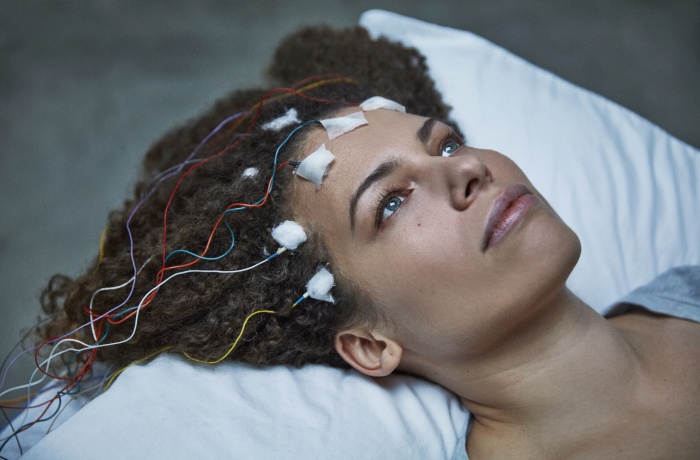
Documentary cinema and activism work together, and they have something to show to the sceptics. And the more tangible the results of this tandem are, the more various technological developments are becoming part of our digital routine. This year, we decided to create the impact campaign lab CHANGE IT! for activists and documentary filmmakers. Impact campaigns are effective strategies for distributing documentary films in order to achieve socially important impact goals.
During the festival, as a part of the CHANGE IT! Lab, we will show three films and organise three workshops where representatives of impact campaigns will share their own experiences of using documentaries, social media and film promotion in social media as effective agents of change.
For example, for Bing Liu, the young American director of the film Minding the Gap, which was nominated for an Oscar this year, a film camera becomes an instrument that allows him not just to deal with the difficulties of growing up in a depressed town, but also gives him an opportunity to articulate traumas caused by domestic violence, and give visibility to an important problem which society prefers to overlook. In the absence of elementary communication skills, the camera lens becomes necessary.
Case Study: the campaign around Minding the Gap is still gaining momentum. Thus, Megan Vandervort, a representative of the Picture Motion impact campaign, will talk about how the film managed to achieve such success, and she will also share her plans with human rights advocates and NGOs. For example, Megan will talk about impact strategies and tactics that were used for the campaign around Minding the Gap, and how the impact results could be defined. 25 March, from 10 until 11.30 a.m., at the IZONE Creative Space.
We’ve already had an opportunity to discuss Minding the Gap, since this film was also part of the DOCU/HITS collection. Olha Sydorushkina talks about the other two films.
Death by Design, director Sue Williams
This eco-documentary by Sue Williams reveals that electronic waste is essentially a time bomb. The director shows how infantile conservatism, which has spread throughout the world with the advent of gadgets, is depriving us of our planet and health. In addition to criticising the consumerist society, the film raises questions about the responsibility of corporations that are aware of the dangers of working with chemicals while still paying for slave labour in China.
Starting her narration from Silicon Valley and her interviews with the first activists and victims of production, Sue even shows us IBM’s corporate mortality file. It states that some types of cancer are several times more common among workers than the national average. Moving to China, we see terrible pollution around factories, a lot of overtime work, and the complete disregard of any health standards. These images, without the need for any additional comments, raise the question: how long will humanity be able to update their gadgets in such a carefree way? The film's impact campaign was built around a petition forbidding the export of toxic electronic waste from the United States to China.
Case Study: Death by Design: A Case Study on Impact from the Grassroots with Caitlin Boyle. Caitlin founded the boutique film distribution firm Film Sprout in 2009, becoming an advocate of film’s power to effect grassroots social change. She grassroots audience engagement efforts for more than fifty films. Through a case study featuring the documentary film Death By Design, Caitlin charts how grassroots screening initiatives and citizen-driven actions like petition- and letter-writing campaigns can create new opportunities for documentaries seeking to make a change in the world. 26 March, 10–11.30 a.m., IZONE.
Unrest, director Jennifer Brea
The director, screenwriter, and main character in this autobiographical film is Jennifer Brea, a person suffering from chronic fatigue syndrome (CFS), an unexplored yet very common illness that afflicts at least 1% of the population (more than multiple sclerosis).
Jennifer used to be an active Harvard graduate, until suddenly, for no clear reason, she lost the ability to walk normally, feeling permanent weakness and severe migraines. That was when she decided to film herself, searching for people with the same diagnosis online and doing Skype interviews with other sufferers, doctors and social workers who try to change the attitudes of society and governments to CFS. Messengers, YouTube, and Facebook are the main tools of communication between Brea and her characters. The internet is the only way to find support and express oneself. Due to their inability to move, the people with this underexplored syndrome spend years in darkened rooms without leaving their beds. Thanks to the World Wide Web, the director and activists were able to organise actions in various countries to draw attention to the social status of CFS patients.
Chronic fatigue syndrome has only recently been recognised as an illness, and most doctors still adhere to the concept of it as a psychosomatic condition. Unfortunately, the cause of the illness is unknown, and there is almost no funding for its studies. Nevertheless, the film crew gave us the opportunity to get a little closer to understanding how the world is seen by those who suffer from CFS, and to raise the question about the need to research this disease and search for treatment methods. Besides Brea’s full-length film, the viewers of DOCUDAYS UA will also be able to watch a VR project based on the film – a virtual journey into Jennifer’s world.
Case Study: Unrest: Case Study on Creative Impact Distribution with Rebecca Ashdown. Rebecca is campaign director for Together Films, a marketing, distribution & data agency. She specialises in developing strategic partnerships to ensure that content reaches the widest possible audience and manages theatrical and non-theatrical bookings for Together Films titles and lead acquisitions. Rebecca will discuss the unique hybrid distribution model, the creative ways to maximise custom non-theatrical screening campaigns and reach your target audience using the right platform. 27 March, 10–11.30 a.m, IZONE.
Text by Olha Sydorushkina
Credit photo: Unrest by director Jennifer Brea